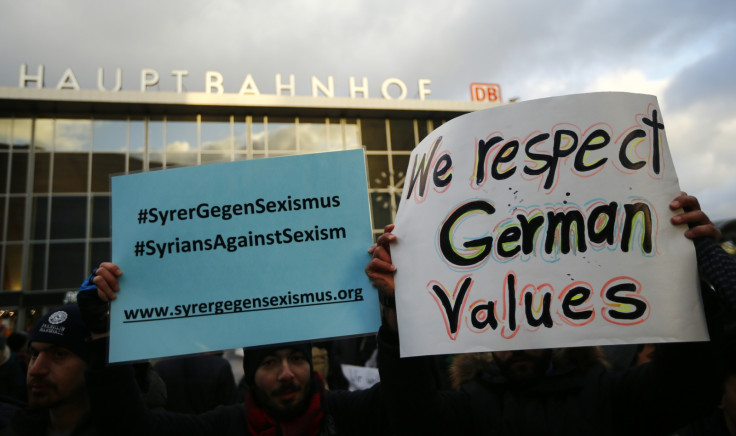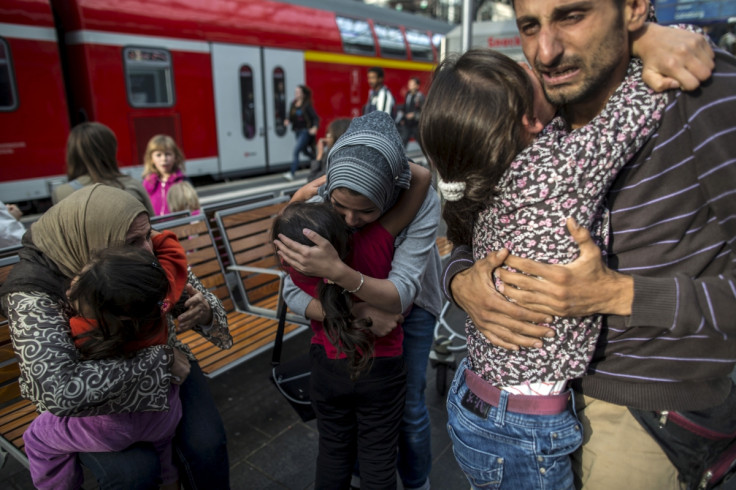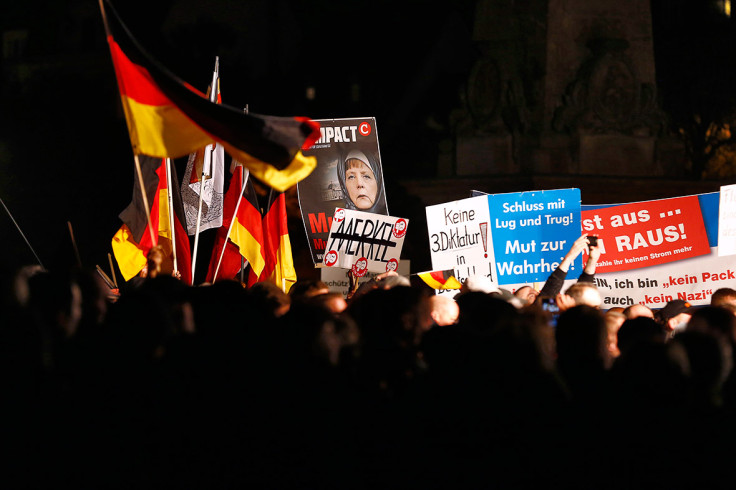Syrian refugees brace for far-right backlash as terrorism pandemic hits Germany
Syrian asylum seekers see attitudes changing after spate of attacks involving refugees.

When Monis Bukhari, a Syrian journalist and activist, came to Berlin three years ago on a working visa, his application took 20 minutes. "Everyone helped me, and they said we are helping because you are Syrian."
In June of this year Bukhari's visa expired. He was advised to apply for asylum rather than renew it. "From the moment I became a refugee, all the processes in the official foundations became much harder. It took them three months to react," he said, speaking in the city's hip Kreuzberg district. A decision is still pending.
Around a million Syrians have entered Germany this year, fleeing the war at home that has claimed almost half a million lives. At first Chancellor Angela Merkel's call to welcome refugees was largely applauded, but with resources creaking and the country reeling after a spate of terror attacks, the mood is changing.
On July 18 an axe- and knife-wielding Afghan refugee injured four people on a train in Würzberg. A week later a Syrian refugee murdered his girlfriend with a kebab knife, just minutes before another asylum seeker whose application had been rejected blew himself up in the Bavarian town of Ansbach, wounding 15.
The violence has been a boon to right-wing parties in Germany – not least the anti-immigrant Alternative for Germany (AfD) party, whose popularity has surged.
We applauded the people and they smiled at us. We fled from death and now death is following us
"We have always said that many terrorists were coming here under the guise of refugees, that the uncontrolled arrival of people alien to our culture and tradition was a threat to our security," AfD deputy chairman Alexander Gauland said. "These recent terrorist attacks prove that we were right."
Germany's Syrians are worried. Bukhari, who runs a Facebook group for refugees, said: "They all notice that Europe is shifting right, and the voice of the left-wing is decreasing more and more."
Nidal Ahmad, 40, was an intelligence officer in the Syrian Army before being condemned to death for refusing orders. Having escaped jail, Ahmad found his way first to Turkey, then Greece and the Balkans before settling in Frankfurt, Germany's financial heartland. He has been waiting on his asylum application for a month.
"We understand there is a lot of pressure on Germany, due to the influx of a large number of refugees to Germany and Europe in general," he said.
"We live in difficult times. All eyes are staring at us and pointing the finger after every terrorist attack infects Germany or any other European country. A few weeks ago, life was fun here. We used to go to school to learn the language and go shopping everywhere. We applauded the people and they smiled at us. We fled from death and now death is following us."

Tareq, 30, was an architect in Damascus before fleeing the violence 14 months ago. He has still not received word of his asylum application and argues that the slow bureaucratic process is causing yet more problems: "It is 14 months, no-one has interviewed me. And there are many refugees like me, perhaps even Isis radicals. This is what makes the situation worse. And then they blame the refugees."
Whether we want to admit it or not, radical Islam was always in Syria.
He has noticed a shift in the perception of refugees from the very people working with Syrians. "I met a lady, 55 years old. At the beginning she was very kind and thought I didn't understand German.
"Then one night she was talking about refugees and she didn't think I knew what she way saying, and was saying that the AfD is right. I can understand her motives, but this is what has happened. We can understand how political parties use this to get to power, so maybe we can expect this."
"For me, I prefer death than to return to Syria."
Many Syrians, however, are unsurprised attackers are arriving alongside them. Muhannad, 25, is an English literature graduate who came to Germany 11 months ago. His own asylum application went quickly, he believes, because he is gay. "If you're Syrian you have two choices: live in a dictatorship, or have radical Muslims wanting to behead you," he said.
He too has noticed German attitudes towards refugees changing: "They tell me out loud that they aren't happy with people coming here to take money. People think Germans have everything, that they enjoy the best life. But [many] are not rich, they are not content with their lives. This is a misconception of people from Syria."
Muhannad, who is from the western city of Latakia, can understand why Germans have issues with the different culture of Syrian refugees: "They say bad things about women all the time and they look at women in a really sexual way. I'm really sorry to see all those people coming from Syria and doing all those horrible things."
"But [at the same time] I'm not shocked, because that's who they are. Whether we want to admit it or not, radical Islam was always [in Syria]. There were always radical Muslims, even before the revolution."
Syrians in Germany face a precarious future. While they are aware that the country has shown great compassion in welcoming them, they see a changing tide in opinion that looks set to continue – especially as Germans prepare for elections next winter. Then, the AfD and right-wing commentators will surely up their rhetoric.
And radicals, roused by the past week's events, will surely look to cause even more mayhem.
"The problem now lies in the interpretation of events by people," Nidal, the absconded soldier, said. "For me, I prefer death than to return to Syria. Every day I sit down and see the beautiful horizon here. Then I remember my situation and I cry. I want to live in peace and security only."

Sean Williams is a British writer and journalist living in Berlin. His work has appeared in The New Yorker, the Guardian and the Economist. Follow him: @swilliamsjourno
© Copyright IBTimes 2025. All rights reserved.





















